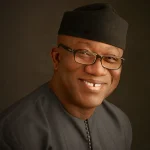US President, Donald Trump has unveiled a new trade deal with South Korea that will see South Korean imports taxed at 15%, while American exports to the East Asian country will remain duty-free.
The announcement comes as part of a broader push by Trump to finalize trade agreements before his August 1 deadline for steep new tariffs on dozens of countries. Posting on Truth Social, Trump described the pact as a “full and complete” trade deal.
Under the agreement, the 15% tariff will apply specifically to South Korean vehicles—a significant win for Seoul’s auto industry, which had previously faced a 25% tariff on cars and auto parts.
However, South Korea resisted US pressure to open its agricultural market further. Requests for greater American access to rice and beef sectors—issues that have sparked fierce opposition from South Korean farmers—were rejected by Seoul.
The agreement also preserves existing US tariffs on South Korean steel, aluminum, and copper. Commerce Secretary Howard Lutnick confirmed there would be no reduction in duties for those industries.
In addition to the tariff arrangement, Trump said South Korea would invest $350 billion in projects “owned and controlled” by the United States, and purchase $100 billion worth of liquefied natural gas and other American energy products.
He also announced that South Korea would invest a “large sum” for its own purposes in the US, with details expected during an upcoming visit by President Lee Jae-myung to the White House.
“It is also agreed that South Korea will be completely OPEN TO TRADE with the United States, and that they will accept American product including Cars and Trucks, Agriculture, etc,” Trump wrote.
President Lee, who took office in June following the political fallout from former President Yoon Suk-yeol’s impeachment, welcomed the agreement and said it would bring stability to South Korea’s export-driven economy.
“The key is not to pursue unilateral benefits but to derive mutually beneficial results,” Lee said in a Facebook post.
He added that the $350 billion would serve as a fund to support South Korean companies expanding into the US market, particularly in sectors like semiconductors, shipbuilding, secondary batteries, biotechnology, and energy.
“This agreement is the outcome of aligning the US interests in revitalising its manufacturing industry with our determination to expand the competitiveness of our companies in the US market,” Lee stated. “Through this, we anticipate that industrial cooperation between Korea and the US will be further strengthened, and the Korea-US alliance will become even more solid.”
Kathleen Oh, chief Korea economist at Morgan Stanley, described the deal as “a case of the worst avoided.”
“We see the details of the deal as broadly positive, in line with our base case,” she noted in a statement.
Financial markets responded cautiously. South Korea’s benchmark KOSPI index rose 0.4% early Thursday but later dropped 0.9%. Shares in Hyundai and Kia fell 3.5% and 6% respectively as of late morning.
South Korea, the US’s sixth-largest trading partner, had been bracing for a 25% general tariff if no agreement was reached. Trump’s previous tariffs had already impacted the country’s economy, which is heavily dependent on exports.
According to South Korea’s Ministry of Trade, Industry and Energy, exports—which account for over 40% of GDP—declined 0.03% in the first half of 2025.
The IMF forecasts South Korea’s economy will grow just 0.8% this year, the lowest rate since 2020.
This deal with South Korea adds to a string of agreements Trump has reached in recent weeks. Others include the European Union, Japan, the United Kingdom, Vietnam, Indonesia, and the Philippines. A 90-day trade truce with China is also in effect.
In a late Wednesday interview with Fox News, Secretary Lutnick said the US had finalized similar deals with Cambodia and Thailand, though no further details were provided.
(Aljazeera)
WATCH TOP VIDEOS FROM NIGERIAN TRIBUNE TV
- Relationship Hangout: Public vs Private Proposals – Which Truly Wins in Love?
- “No” Is a Complete Sentence: Why You Should Stop Feeling Guilty
- Relationship Hangout: Friendship Talk 2025 – How to Be a Good Friend & Big Questions on Friendship
- Police Overpower Armed Robbers in Ibadan After Fierce Struggle






